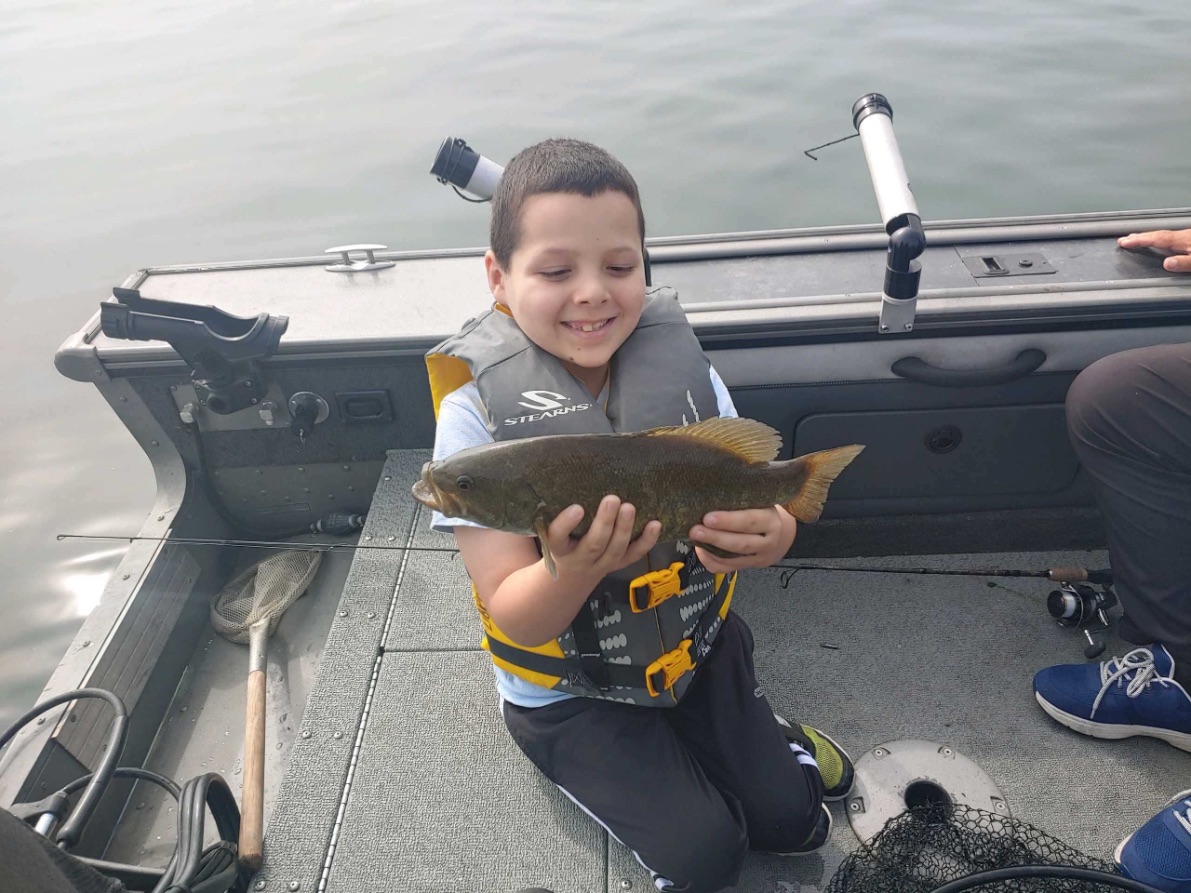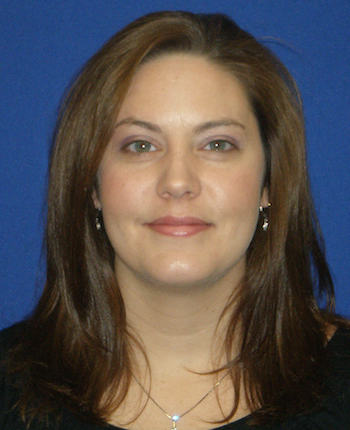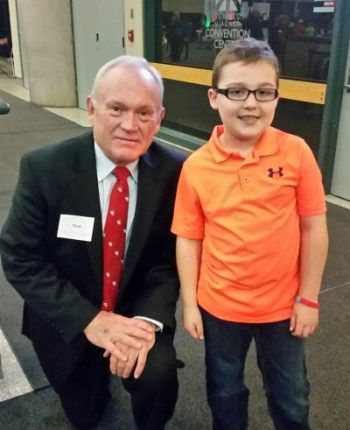Read Article Below


Read Article Below
Jennifer J. Schweitzer, MA, 1 Odochi Uwazurike, 2 Ned Librock, 3 Erin Brewer-Spritzer, 4 and Denise Rokitka, MD, MPH 4
Each year in the United States, approximately 15,000 children under the age of 19 are
diagnosed with cancer. [1] The physical symptoms of cancer treatments are well-documented and
can include fatigue, insomnia, pain, changes in appetite, nausea and vomiting, diarrhea,
constipation, hair loss, skin changes, and many others. [2] Any or all of these symptoms can
reduce patients’ quality of life and limit their participation in leisure time with peers or activities
at school, factors that researchers have found are vitally important to an individual’s
psychosocial development. [3] Thus, cancer can often affect patients’ mental health too. Studies
have shown that pediatric cancer survivors have an elevated risk of depression, anxiety, and post-
traumatic stress disorder (PTSD). [4, 5]
A pediatric cancer diagnosis negatively affects patients’ families as well. The frequent
inpatient and outpatient visits that are required during cancer treatments often disrupt parents’
work schedules, and it is not uncommon for caregivers to quit or change jobs as a result. [6] And
similarly to cancer patients, caregivers also often report disengagement from social and leisure
activities. [7] Financial stress, caretaking responsibilities, and the fear of losing a loved one can
have deleterious effects on the psychological well-being of families. Consequently, caregivers of
cancer patients have reported higher levels of stress and burnout and decreased quality of life. [8]
The stress of caring for a child with cancer puts caregivers at risk for posttraumatic stress
symptoms. [9] And caregivers’ stress can, in turn, negatively affect pediatric cancer patients: in
one study, “mothers’ perceptions of life threat and treatment intensity were a significant
predictor of their children’s appraisal of life threat and treatment intensity.” [10]
Traditionally cancer research has focused on improving treatments and outcomes, but in
more recent years, researchers have begun to look for ways to reduce the psychosocial effects of
cancer and cancer treatments. Increasingly cancer centers are using complementary and
recreational therapies to “optimize functioning, coping, and quality of life during treatment.” [11]
Recreational therapy may include art therapy, dance and music therapy, games, and opportunities
for social events, such as support groups. Such programs have been shown to reduce stress and
improve patients’ quality of life. [12-14]
Recently these programs have also expanded to include outdoor excursions. For example,
several organizations provide free fishing trips for cancer patients and survivors. Fishing, or
angling, can have physical and psychological benefits for participants. The motion of casting and
reeling with a fishing pole can be good physical therapy for those healing from surgery while the
comradery of being with other cancer patients and survivors in nature often provides emotional
benefits. [15] Because fishing requires focus and attention, it diverts a person’s thoughts from
stressors and conflict and may reduce anxiety. [16] Researchers have also found that simply being
near water may improve physical and mental health. Water has an incredible ability to positively
affect people, both mentally and physically. So much so that scientists have dubbed the state of
mind and body created by water – one of peace, calmness and awareness – as “blue space” or
“blue mind.” [17] Exercises such as fishing have also been found to increase participants’ self-
esteem and improve mood. [18]
Established in 2015 by Captain Ned Librock, Catching Dreams Charters, Inc. is a
501(c)(3) organization in Western New York that provides chartered fishing tours on Lake Erie
and the Niagara River to children, adolescents, and young adults who have been diagnosed with
cancer. Parents, caregivers, or other family members are also welcome. Its mission is to provide
young cancer patients and their families a brief respite from the stress of cancer treatments while
learning a new activity and spending time out on the water. [19] There are no out-of-pocket costs
to participants, which families who may have experienced financial hardships because of cancer
treatments to still take part in this opportunity.
Weather permitting, charters are offered throughout the spring and summer. Available
times and dates for fishing charters are announced on social media, advertised on flyers, and
offered through social events specifically for cancer patients and survivors, such as support
groups and holiday parties. This program is immensely popular, and spots fill quickly for the
season.
The average fishing trip lasts approximately five hours, typically leaving the dock at
7:30AM and returning by 1:00PM. All fishing tackle and supplies are provided, but families are
welcome to bring snacks and beverages if they choose. Each charter is led by a certified Coast
Guard Captain and most trips also have a qualified first mate to assist the Captain. For safety
purposes and to ensure an individualized fishing experience, trips are limited to between two to
three people. At the dock, the Captain reviews boating safety protocols, demonstrates how to
properly wear life jackets, and covers a few “what if” scenarios. He also discusses the species of
fish they’ll be trying to catch (which varies over the season), the type of tackle and bait they’ll be
using that day, and the general strategy for the fishing trip. Participants are also shown the proper
technique for catching and netting a fish. Finally, the captain and first mate answer any questions
and address any concerns before the ropes are pulled, and the charter sets out.
The travel time to the fishing spot varies due to weather, time of year, and the type of fish
targeted that day. While en route, the crew highlights various points of interest along the
American and Canadian shorelines. When the boat arrives at a spot that seems like an optimal
fishing location, the Captain and the first mate bait the rods, which are then either placed in rod
holders or individually held. Assistance is provided to younger children, if needed. Once a fish is
caught, the guest reels in the fish. The motion of casting and reeling is an excellent low-impact
exercise that requires minimal exertion from patients recovering from cancer therapy. The crew
nets all fish and removes the hook so participants can take a photo with their catch if they wish.
Fish are then either released back into the water or secured in live wells for cleaning later.
After several hours of fishing, poles are taken out of the water and the return trip begins.
Each participant is allowed the opportunity to help the Captain drive the boat on the way back.
Once the boat arrives at the dock, the fish are cleaned by the crew, and participants have the
option of having their photo taken with the Captain and first mate. Photos are sent to the guests
within a few business days.
At the end of each charter, participants are asked to complete an anonymous survey,
which collects both demographic and qualitative data. Results from surveys administered over
the summer of 2019 indicate that fishing or piscatorial therapy could be an effective
complementary therapy for cancer patients and survivors to help reduce stress and anxiety. When
asked, several respondents stated that the best part of the experience was getting to spend time
with family without thinking about cancer or cancer therapy. One father of a six-year-old
leukemia patient said, “The best part was seeing the excitement on my son’s face. I cannot think
of anything that would have made this day better. My son loved the trip and his new fishing
rod!” Another family—whose mother and son were both battling cancer at the same
time—echoed this sentiment, “The best part of the day was just being out on the water and trying
to catch fish. Any time the boys can get their minds off medical problems is good.” The father of
an eight-year-old boy who was still undergoing treatment for leukemia said that he particularly
enjoyed the “ability to go fishing as father and son. The opportunity to fish is a treat that was
very much enjoyed.”
Participants reported that being on the water was very calming. A twenty-year-old male
who had recently completed cancer treatment said that he liked “the fresh air, the calmness, and
the quiet and relaxation” of being on the boat. The parent of a thirteen-year-old leukemia patient
reported that the best part of the day was “being on the boat and being out on the water.” A
twelve-year-old leukemia survivor said his favorite part was “just being out on the water fishing
and taking home a lot of big fish.” A nineteen-year-old female cancer survivor responded, “I
loved just the overall feeling of being out on the lake, taking in the atmosphere, and learning
about the right way to catch fish.”
The educational aspect of the trip was mentioned by almost all of the respondents. A
twenty-seven-year old survivor of ovarian cancer said that the trip “was extremely fun” and she
and her family “enjoyed the captain explaining why things were happening, how to know where
to find fish, why we were catching what we were catching.” She joked that the only downside
was that she was not expecting to catch as many fish as they caught and had not brought a cooler
to take all of the fish home with them. Another twenty-seven-year old male genitourinary cancer
survivor reported that his favorite part of the trip was “learning about fishing.”
Another common response was how much participants enjoyed being able to spend time
with others and the feeling of normality. A seventeen-year-old lymphoma survivor said that the
best part of the trip was “catching a lot of fish and talking.” Another respondent, a fourteen-year-
old leukemia survivor, said he liked “catching fish and the camaraderie.” Another seventeen-
year-old cancer survivor reported that the best part for him was the opportunity to “hang out with
two great guys doing something I love.”
Programs such as Catching Dreams Charters, Inc. show promise as a complementary
psychosocial therapy for pediatric, adolescent, and young adult cancer patients and their families
for several reasons. First, there is no cost to participants, so it is available to families regardless
of their income. Second, fishing, or angling, can have therapeutic benefits for patients recovering
from cancer and/or cancer therapy. It is a low-impact exercise that requires moderate exertion.
Third, being outdoors and on the water can invoke feelings of relaxation and help reduce stress
and anxiety in patients and family members. Finally, it provides participants with a sense of
community and a chance to take their minds off of cancer and cancer treatments. For young
cancer patients, survivors, and families, Catching Dreams Charters truly is “turning wishing into
fishing.”
References
1. Siegel RL, Miller KD, Jemal A. Cancer statistics, 2018. CA: A Cancer Journal for
Clinicians 2018; 68: 7-30.
2. Institute NC. Side Effects of Cancer Treatment. In. Bethesda, MD: US Department of
Health and Human Services.
3. Götte M, Taraks S, Boos J. Sports in pediatric oncology: the role(s) of physical activity
for children with cancer. J Pediatr Hematol Oncol 2014; 36: 85-90.
4. Bitsko MJ, Cohen D, Dillon R et al. Psychosocial Late Effects in Pediatric Cancer
Survivors: A Report From the Children's Oncology Group. Pediatric blood & cancer 2016; 63:
337-343.
5. Zebrack BJ, Zeltzer LK, Whitton J et al. Psychological outcomes in long-term survivors
of childhood leukemia, Hodgkin's disease, and non-Hodgkin's lymphoma: a report from the
Childhood Cancer Survivor Study. Pediatrics 2002; 110: 42-52.
6. Warner EL, Kirchhoff AC, Nam GE, Fluchel M. Financial Burden of Pediatric Cancer
for Patients and Their Families. Journal of oncology practice 2015; 11: 12-18.
7. Mosher CE, Champion VL, Azzoli CG et al. Economic and social changes among
distressed family caregivers of lung cancer patients. Support Care Cancer 2013; 21: 819-826.
8. Lapid MI, Atherton PJ, Kung S et al. Cancer caregiver quality of life: need for targeted
intervention. Psychooncology 2016; 25: 1400-1407.
9. Perez MN, Sharkey CM, Tackett AP et al. Post traumatic stress symptoms in parents of
children with cancer: A mediation model. Pediatr Hematol Oncol 2018; 35: 231-244.
10. Stuber ML, Kazak AE, Meeske K et al. Predictors of Posttraumatic Stress Symptoms in
Childhood Cancer Survivors. Pediatrics 1997; 100: 958.
11. University D. Oncology Recreation Therapy. In.
12. Geue K, Goetze H, Buttstaedt M et al. An overview of art therapy interventions for
cancer patients and the results of research. Complement Ther Med 2010; 18: 160-170.
13. Bradt J, Potvin N, Kesslick A et al. The impact of music therapy versus music medicine
on psychological outcomes and pain in cancer patients: a mixed methods study. Support Care
Cancer 2015; 23: 1261-1271.
14. Zebrack B, Isaacson S. Psychosocial care of adolescent and young adult patients with
cancer and survivors. J Clin Oncol 2012; 30: 1221-1226.
15. Fishing for Cancer Survivors. Oncology Times 2003; 25: 21.
16. Health Benefits of Fishing. In Parks O (ed). 2020.
17. Hart J. Blue Space: How Being Near Water Benefits Health. Alternative and
Complementary Therapies 2019; 25: 208-210.
18. Pretty J, Peacock J, Hine R et al. Green exercise in the UK countryside: Effects on health
and psychological well-being, and implications for policy and planning. Journal of
Environmental Planning and Management 2007; 50: 211-231.
19. Catching Dreams Charters, Inc. 2020.
DISCLAIMER: THIS ARTICLE IS SUBJECT TO PUBLICATION AND MAY NOT BE SHARED, DISTRIBUTED,
COPIED, OR OTHERWISE. CATCHING DREAMS CHARTERS, INC.’S EXPRESS WRITTEN CONSENT IS
REQUIRED FOR ANY USE OR REFERENCE, IN WHOLE OR IN PART, OF THIS ARTICLE.
It’s easy and free!
Catching Dreams Charters is a non-profit organization that provides fishing therapy to children with childhood cancer. Our mission is to create unforgettable memories and promote the emotional and physical healing of children through fishing. Our organization is run by a dedicated team of volunteers and relies on donations and community support to continue their important work.
Call Now: 716-870-5326

Denise Rokitka, MD, MPH is a pediatric oncologist in the Roswell Park/Oishei Children’s Cancer and Blood Disorders program. Dr Rokitka’s specialized area of care is in the Long term complications of childhood cancer, promoting ongoing health and wellness for pediatric cancer survivors. Over the past 15 years, in addition to treating patients in the Pediatric Survivorship clinic, she has acted as the Clinical Director of the Young Adult and Oncofertility program at Roswell Park Comprehensive Cancer Center.
Dr. Rokitka serves on the board as a medical advisor. A Buffalo native, Dr. Rokitka lives with her husband and three boys in the Southtowns. The family enjoys traveling and fishing in exotic locations.

Ned Librock is the President and Founder of Catching Dreams Charters, Inc.
Ned is a United States Coast Guard licensed charter boat Captain and a licensed New York State fishing guide. He is a retired Western New York business executive with careers as President of Dynabrade, Inc. in Clarence, New York, the leading manufacturer of abrasive power tools, and Vice President of Sales and Marketing for Columbus McKinnon, a publicly traded global manufacturer of lifting equipment headquartered in Amherst, New York.
Ned received his bachelor’s degree from Buffalo State and his master’s degree from University at Buffalo. He is a trained Cultural Anthropologist with a specialty in economic anthropology.
Ned currently serves on two boards within the Industrial community and has extensive experience serving on not-for-profit boards with various community and industry associations.
Ned lives in Pendleton, New York and is married to Sharon and has two children and five grandkids.